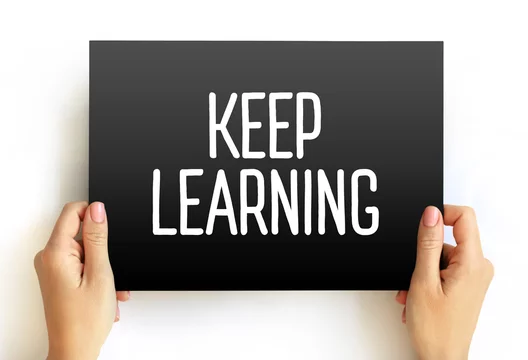As an ambitious professional in the ever-evolving job market, you may feel the way to get ahead is to take a big step – a BIG, BOLD STEP. Gone are the days of spending decades climbing the corporate ladder while confined to a single industry. Many professionals are embracing career transitions as a means of growth – personal or professional.
However, these transitions can be daunting and overwhelming as they are major life-changing decisions. How, then, do you navigate your way around these decisions? Let’s take a closer look.
Understanding the Need for a Career Transition
Internal and external factors usually drive the decision to transition between careers. For some, it is the need to move beyond their current roles, giving rise to an interest in new opportunities and challenges. For others, a change within their industry compels them to switch careers. Also, life events such as relocation, personal aspirations, or family responsibilities may call for a change in career path.
Regardless, the first step toward a new professional course is recognizing the need for a career transition. You must genuinely assess your skills, interests, values, and long-term goals. It is also important to identify the driving factor for this change.
When you understand why this transition is necessary, you can work towards your new objective and make the right decisions as you go.
Strategic Ways to Navigate a Career Transition
To successfully switch careers, you must carefully plan, prepare, and execute your objectives. Here are some tips to guide you through your transition:
- Self Assessment
It is important to evaluate yourself before embarking on a career transition. Take time to comprehensively reflect on your previous experiences, achievements, and areas of expertise. You must also consider what you enjoy about your current role and what aspects are less satisfying. Evaluate your strengths, weaknesses, values, and long-term career goals.
This process will provide you with clarity regarding your decisions and help you identify potential pathways.
- Research and Explore

Once you clearly understand your skills, interests, and goals, conduct proper research into potential career paths and industries that align with your aspirations. You want to explore job market trends, industry reports, and emerging fields to identify opportunities for growth and advancement.
Consider factors such as job demand, salary prospects, work-life balance, and potential for career progression. Engage in informational interviews with professionals in your target industries to gain insights into the day-to-day realities of different roles and industries.
Read: Effective Study Habits: A Guide for Students and Career Professionals
- Skill Development and Enhancement
While considering changing careers, you should also ensure you’re not lacking in skills. Assess your current skillset and identify any gaps or areas for improvement that may be necessary for your desired career transition. Invest in yourself by acquiring new skills, certifications, or qualifications relevant to your target industry or role.
Enhance your skills and stay up-to-date on industry trends through online courses, workshops, and professional development opportunities. Consider seeking mentorship or guidance from experienced professionals who can offer valuable advice and support as you transition.
- Build a Network

In any profession, networking is as essential as breathing. Be sure to cultivate a strong professional network by actively engaging with peers, mentors, and industry contacts who can offer guidance, support, and opportunities during your career transition. Also, attend industry events, networking mixers, and professional conferences to expand your network and connect with individuals who share your interests and goals.
Leverage social media platforms like LinkedIn to connect with professionals in your target industry and engage in relevant online communities and forums. Building meaningful relationships with industry insiders can open doors to job opportunities, mentorship, and valuable insights into the job market.
- Strategic Job Search and Application
Come up with a targeted job search strategy tailored to meet your set objectives. You don’t want to go for any and everything job out there. Research companies and organizations that align with your values, interests, and desired career path. Tailor your resume, cover letter, and professional materials to highlight your relevant skills, experiences, and achievements.
In this age, getting information regarding open roles from the comfort of your house is more accessible. Leverage online job boards, recruitment agencies, and professional networking platforms to identify job opportunities and submit applications. Consider exploring alternative avenues, such as freelance work, contract positions, or internships, to gain valuable experience and exposure to different industries and roles.
Read: A Simple Guide to Personal Budgeting
- Don’t Stop Learning

One way to keep up with the changing landscapes in the labor market is to embrace a growth mindset and remain flexible and adaptable as you navigate your career transition journey. Be curious and eager to learn new things, explore, and adapt to circumstantial changes.
It’s essential to step out of your comfort zone and try new things, even if they involve calculated risks. Embrace challenges when they come and use them to fuel your growth. Remember that a career transition is no child’s play. It is like a marathon race rather than a sprint where success comes with perseverance, resilience, and willingness to embrace change.
Taking a patient and strategic approach can allow you to reshape your career path over the long term slowly.
